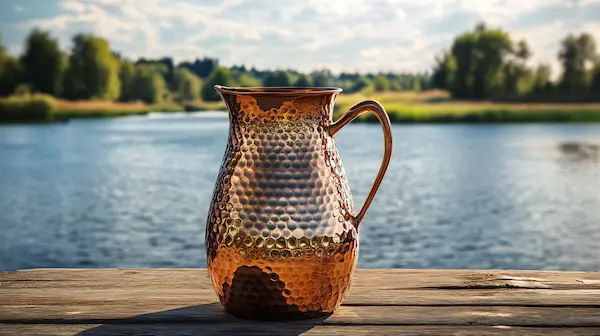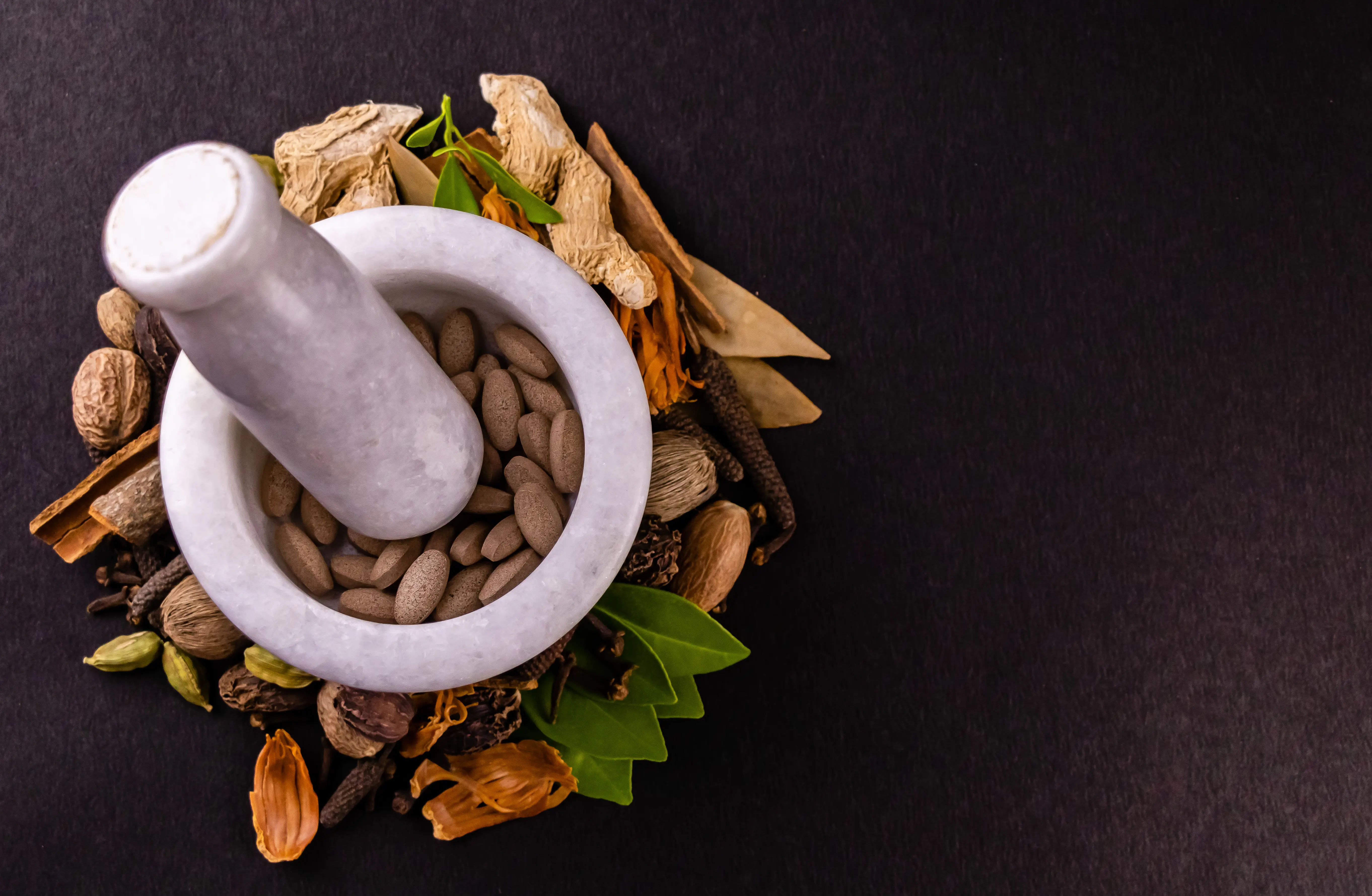Your Diet Guide to Preventing Painful Kidney Stones
Want to prevent kidney stones naturally? Discover how diet and hydration play a key role. Learn what to eat, what to limit, and how to build a sustainable kidney-friendly meal plan to reduce painful stone recurrences.


Kidney stones are hard, crystalline mineral deposits that form inside your kidneys, often causing excruciating pain when they pass. If you've ever experienced one, you'll know you never want to again. The good news is that for many people, kidney stone formation is not an inevitability. Your dietary choices play a starring role in both prevention and recurrence. This comprehensive guide translates the latest medical guidelines into actionable steps you can take at your dining table. We’ll break down the science of stones, explore what to eat, what to limit, and how to build a sustainable eating pattern that keeps your kidneys flowing smoothly. By understanding the connection between your plate and your plumbing, you can take powerful proactive control of your kidney health.
Understanding Kidney Stones: Why Diet is Your First Defence
Before we dive into the dietary changes, it's crucial to understand what we're up against. Kidney stones form when your urine contains more crystal-forming substances—like calcium, oxalate, and uric acid—than the fluid in your urine can dilute. At the same time, your urine may lack substances that prevent crystals from sticking together, creating an ideal environment for stones to form. This imbalance is directly influenced by what you eat and drink.
What Are Kidney Stones?
Think of your kidneys as sophisticated filtration systems. They remove waste and extra fluid from your blood to make urine. Sometimes, certain waste products don't fully dissolve and begin to crystallise. These tiny crystals can attract other elements and stick together, forming a solid mass—a kidney stone—that can range in size from a grain of sand to a pearl. While small stones may pass unnoticed, larger ones can get stuck in the urinary tract, blocking the flow of urine and causing severe pain, nausea, and bleeding.
The Most Common Types of Kidney Stones
Not all stones are created equal, and your dietary strategy should be tailored to the type you form. A doctor can analyse a passed stone to determine its type.
Calcium Oxalate Stones
The most prevalent type accounts for about 80% of stones. They form when calcium combines with oxalate in the urine. Prevention involves not just limiting oxalate, but also ensuring adequate calcium and fluid intake.
Uric Acid Stones
These form when urine is persistently too acidic, a common issue for people who eat a lot of animal protein (red meat, organ meats, shellfish) or who are dehydrated. They account for about 5-10% of stones.
Other Types
Less common types include Struvite stones (often related to infections) and Cystine stones (caused by a hereditary disorder).
The Golden Rule: Hydration is Non-Negotiable
This is the single most important piece of advice for kidney stone prevention, regardless of the type. Fluids, especially water, dilute the substances in urine that lead to stones. Think of it as turning a thick, syrupy urine (where crystals form easily) into a light, diluted urine (where crystals struggle to form).
How Much Water Should You Really Drink?
The standard advice is to drink enough fluid to produce at least 2 to 2.5 litres of urine per day. For most people, this translates to consuming 8-10 standard glasses (roughly 2-2.5 litres) of fluid daily. However, if you live in a hot climate or exercise frequently, you’ll need more. A good visual cue: your urine should be light yellow or clear, not dark.
Signs You're Well-Hydrated
The easiest way to check your hydration status is to look in the toilet. Pale, almost colourless urine is your goal. Dark yellow or amber urine is a clear sign you need to drink more fluids. Making this a habit is the cornerstone of any effective low-oxalate diet plan or stone-prevention strategy.
Navigating Oxalates: Friend or Foe?
Oxalate is a natural compound found in many plants. For those prone to calcium oxalate stones, managing oxalate intake is key—but it’s about being mindful, not obsessive.
High-Oxalate Foods to Be Mindful Of
Common high-oxalate foods include spinach, rhubarb, almonds, cashews, soy products, beets, and sweet potatoes. You don't necessarily need to eliminate these healthy foods entirely. The strategy is to consume them in moderation and, crucially, to pair them with calcium-rich foods.
The Calcium Paradox: Why You Shouldn't Cut It Out
This is a critical insight many miss. Despite the name "calcium oxalate stone," reducing dietary calcium is often a mistake. Calcium in your digestive tract binds to oxalate from food, forming a compound that gets excreted in stool instead of being absorbed into your blood and kidneys. This actually lowers the oxalate levels in your urine. Therefore, a low-calcium diet can actually increase your risk of stones. The goal is to get the recommended amount of calcium from food (like dairy, fortified plant milks, or leafy greens like kale) with meals, not from supplements, which may need to be timed differently.
Slashing Sodium for Kidney Health
A high-sodium diet is a major risk factor for kidney stones. Sodium causes your kidneys to excrete more calcium into your urine. High urine calcium (hypercalciuria) is a primary driver of stone formation. The dietary guidelines recommend limiting sodium to less than 2,300 mg per day.
The Hidden Sodium in Your Diet
The biggest sources often aren't the salt shaker. Be vigilant about:
• Processed foods (frozen meals, canned soups)
• Fast food
• Deli meats and cured meats
• Condiments like soy sauce, ketchup, and salad dressings
• Salty snacks (chips, pretzels)
Cooking at home using fresh ingredients gives you full control over your sodium intake, making it one of the best prevention strategies.
Moderating Animal Protein Intake
Diets high in animal protein (red meat, poultry, eggs, and seafood) can increase the risk of both calcium oxalate and uric acid stones. They can:
• Increase uric acid levels.
• Reduce citrate levels in urine—a chemical that helps prevent stones.
• Increase calcium excretion.
This doesn't mean you need to go fully vegetarian. The key is moderation. Consider adopting a "flexitarian" approach, replacing some animal protein meals with plant-based alternatives like lentils, beans, and chickpeas. If your condition does not improve after trying these methods, consult a urologist online with Apollo24|7 to discuss a personalised plan.
The Role of Citrus and Potassium
Citrus fruits like lemons, limes, and oranges are your kidneys' friends. They contain citrate, which binds to calcium in the urine, preventing the formation of crystals. Squeezing fresh lemon juice into your water is a simple and effective habit. Furthermore, a diet rich in potassium (found in bananas, potatoes, mushrooms, and peas) helps reduce calcium excretion in urine. Does lemon water prevent stones? The citrate in it certainly helps, making it a highly recommended beverage.
Foods That Help Prevent Kidney Stones
Build your diet around these stone-fighting champions:
• Water: Your 1st tool.
• Citrus Fruits: Lemons, limes, oranges.
• Calcium-Rich Foods: Dairy (yoghurt, milk), fortified plant milks, broccoli, kale (eaten with meals).
• Potassium-Rich Foods: Bananas, avocados, mushrooms, sweet potatoes.
• Water-Rich Foods: Cucumbers, celery, watermelon.
• Plant-Based Proteins: Lentils, beans, peas.
Sample One-Day Kidney-Stone Prevention Meal Plan
• Breakfast: Greek yoghurt (calcium) with blueberries and a sprinkle of low-oxalate seeds like sunflower seeds.
• Lunch: Large salad with grilled chicken (moderate portion), kale, cucumbers, and a lemon-based vinaigrette. Include a slice of whole-grain bread.
• Snack: An apple and a handful of low-oxalate nuts like macadamia nuts.
• Dinner: Salmon fillet with a side of quinoa, roasted cauliflower, and mushrooms (potassium).
• Throughout the day: Drink a large glass of water with fresh lemon juice with every meal and several glasses in between.
Conclusion
Preventing kidney stones doesn't require a radical or restrictive diet, but rather a series of thoughtful, sustainable shifts in your eating and drinking habits. By prioritising relentless hydration, balancing your intake of oxalates and calcium, cutting back on sodium and animal protein, and welcoming citrate-rich foods, you can significantly alter the chemistry of your urine to make it a hostile environment for stones. Remember, these dietary guidelines are a powerful form of self-care. Consistency is more important than perfection. If you have a history of stones or are at high risk, partnering with a healthcare professional is essential to create a tailored plan that works for your body. Take control of your kidney health today—your future self will thank you for it.
Consult a Nephrologist for the best advice
Consult a Nephrologist for the best advice
Dr Ch Sashidhar
Nephrologist
20 Years • MBBS, MD General Medicine, DNB, Nephrology
Secunderabad
Apollo Hospitals Secunderabad, Secunderabad

Dr. Pardha Saradhi
Nephrologist
9 Years • MBBS, MD-DNB (Gen. Med.), DNB (Nephro)
Hyderabad
Apollo Hospitals D R D O kanchanbagh, Hyderabad
(75+ Patients)

Dr. Manju Kamal
Nephrologist
12 Years • MBBS,MD(General Medicine), DNB,DM(Nephrology)
Angamaly
Apollo Hospitals Karukutty, Angamaly

Dr. Venkatesh Rajkumar S
Nephrologist
10 Years • MD (Gen Med.), DM (Nephro), FISNC (Interventions)
Chennai
Apollo Hospitals Greams Road, Chennai
(275+ Patients)

Dr. Boddanapu Mastan Valli
Nephrologist
9 Years • M.D, D.M.
Nellore
Apollo Speciality Hospitals, Nellore
Consult a Nephrologist for the best advice
Dr Ch Sashidhar
Nephrologist
20 Years • MBBS, MD General Medicine, DNB, Nephrology
Secunderabad
Apollo Hospitals Secunderabad, Secunderabad

Dr. Pardha Saradhi
Nephrologist
9 Years • MBBS, MD-DNB (Gen. Med.), DNB (Nephro)
Hyderabad
Apollo Hospitals D R D O kanchanbagh, Hyderabad
(75+ Patients)

Dr. Manju Kamal
Nephrologist
12 Years • MBBS,MD(General Medicine), DNB,DM(Nephrology)
Angamaly
Apollo Hospitals Karukutty, Angamaly

Dr. Venkatesh Rajkumar S
Nephrologist
10 Years • MD (Gen Med.), DM (Nephro), FISNC (Interventions)
Chennai
Apollo Hospitals Greams Road, Chennai
(275+ Patients)

Dr. Boddanapu Mastan Valli
Nephrologist
9 Years • M.D, D.M.
Nellore
Apollo Speciality Hospitals, Nellore
More articles from General Medical Consultation
Frequently Asked Questions
1. Does lemon water really prevent kidney stones?
Yes. Lemon juice is high in citrate, which is a natural inhibitor of calcium crystal formation. Adding the juice of one lemon to your water a few times a day can significantly increase your urine citrate levels.
2. What are the worst foods for kidney stones?
This depends on the stone type. For calcium oxalate stones, the riskiest combination is consuming large amounts of high-oxalate foods (like spinach and nuts) without adequate calcium and fluid. For uric acid stones, organ meats, red meat, and shellfish are major triggers due to their high purine content.
3. Is coffee or tea bad for kidney stones?
In moderation, coffee and tea are generally acceptable and can even contribute to your overall fluid intake. However, black tea is moderately high in oxalate, so if you drink it in large quantities, it might be a concern. Balance is key.
4. Can I get enough calcium without dairy?
Absolutely. Many foods are fortified with calcium, such as almond milk, soy milk, and orange juice. Other good non-dairy sources include canned sardines (with bones), tofu made with calcium sulfate, and leafy greens like kale and bok choy.
5. How quickly will these dietary changes work?
Dietary changes impact urine composition within hours to days. However, preventing the formation of a stone that takes months to grow requires long-term consistency. Stick with the healthy habits to see lasting results.




